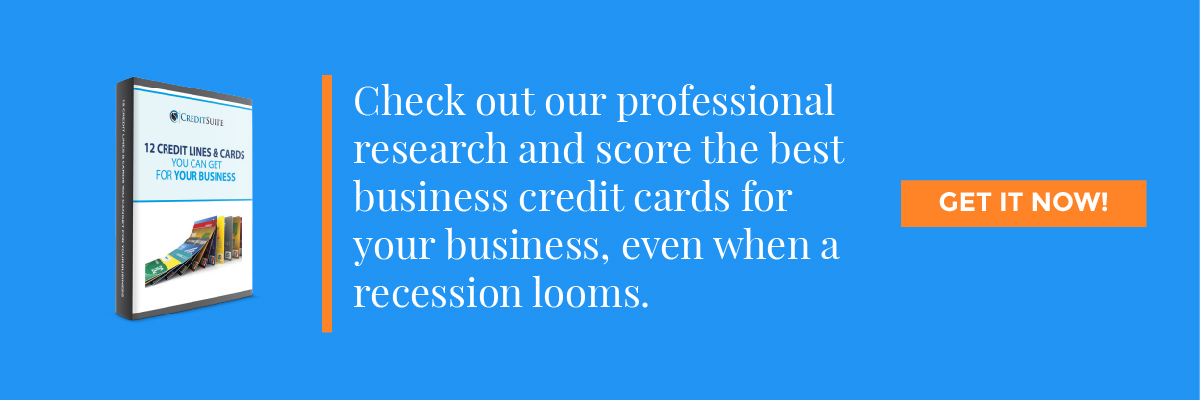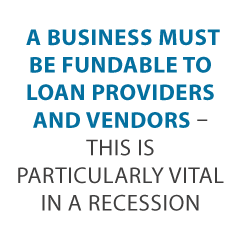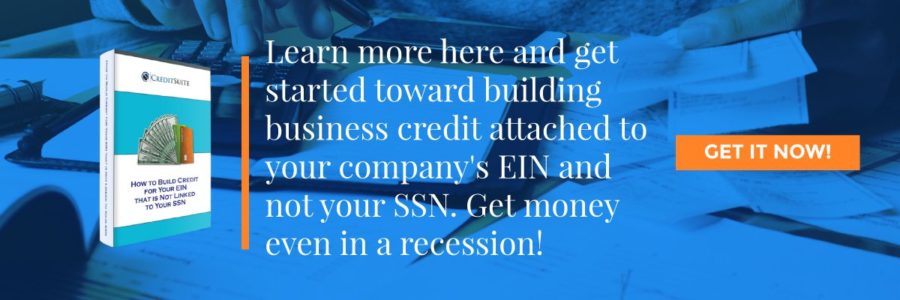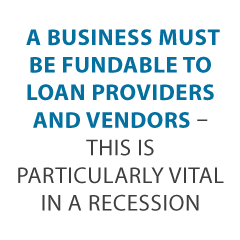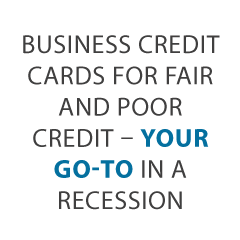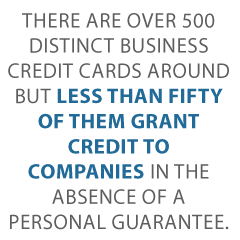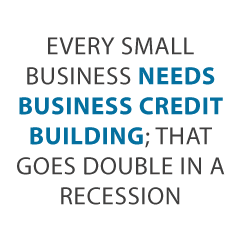
Bad Credit Small Business Credit Cards in a Recession – This is Proven!
As the novel coronavirus changes our economy, there’s one thing you can count on – bad credit small business credit cards in a recession. Yes, they really exist – even in what is looking a lot like an inevitable recession.
Do You Have Bad Credit? Small Business Credit Cards Can Still Be in Your Reach, Even in a Recession
Bad Credit? Small business credit cards in a recession can still be yours, if you know where to look. Fortunately, we have done the research for you.
According to the SBA, company credit card limits are several times that of personal cards! This means you can get a lot more money with corporate credit. And it also means you can have personal charge cards at stores, and now have a second card at the same stores for your small business. And you will not have to put up collateral, cash flow, or financial information in order to get corporate credit.
Even with bad credit, you can still qualify for several of these cards.
Get a Bad Credit Small Business Credit Cards in a Recession with 0% Introductory APR – Pay Zero!
Blue Business® Plus Credit Card from American Express
Take a look at the Blue Business® Plus Credit Card from American Express. It has no annual fee. There is a 0% introductory APR for the initial year. After that, the APR is a variable 14.74 – 20.74%.
Get double Membership Rewards® points on day to day business purchases like office supplies or client dinners for the initial $50,000 spent annually. Get 1 point per dollar afterwards.
You will need great to outstanding credit scores to qualify.
Find it here: https://creditcard.americanexpress.com/d/bluebusinessplus-credit-card/
American Express® Blue Business Cash Card
Also have a look at the American Express® Blue Business Cash Card. Keep in mind: the American Express® Blue Business Cash Card is identical to the Blue Business® Plus Credit Card from American Express. Yet its rewards are in cash rather than points.
Get 2% cash back on all qualified purchases on up to $50,000 per calendar year. After that get 1%.
It has no annual fee. There is a 0% introductory APR for the first year. After that, the APR is a variable 14.74 – 20.74%.
You will need great to outstanding credit to qualify.
Find it here: https://creditcard.americanexpress.com/d/business-bluecash-credit-card/
Get a Remarkable Bad Credit Small Business Credit Cards in a Recession with No Annual Fee
No Yearly Fee/Flat Rate Cash Back
Ink Business Unlimited℠ Credit Card
Take a look at the Ink Business Unlimited℠ Credit Card. Beyond no yearly fee, get an introductory 0% APR for the first 12 months. After that, the APR is a variable 14.74 – 20.74%.
You can get unlimited 1.5% Cash Back rewards on every purchase made for your business. And get $500 bonus cash back after spending $3,000 in the first 3 months from account opening. You can redeem your rewards for cash back, gift cards, travel and more through Chase Ultimate Rewards®. You will need excellent credit scores to qualify for this card.
Find it here: https://creditcards.chase.com/business-credit-cards/ink/unlimited
Bad Credit Small Business Credit Cards in a Recession, Not Needing a Personal Guarantee
Brex Card for Startups
Check out the Brex Card for Startups. It has no annual fee.
You will not need to supply your Social Security number to apply. And you will not need to supply a personal guarantee. They will take your EIN.
Nonetheless, they do not accept every industry.
Likewise, there are some industries they will not work with, as well as others where they want more paperwork. For a list, go here: https://brex.com/legal/prohibited_activities/.
To determine creditworthiness, Brex checks a corporation’s cash balance, spending patterns, and investors.
You can get 7x points on rideshare. Get 4x on Brex Travel. Also, get triple points on restaurants. And get double points on recurring software payments. Get 1x points on everything else.
You can have bad credit (even a 300 FICO) to qualify.
Find it here: https://brex.com/lp/startups-higher-limits/
Check out how our reliable process will help your business get the best business credit cards, even during a recession.
Bad Credit Small Business Credit Cards in a Recessions for Luxurious Travel Points
Flat-rate Travel Rewards
Capital One® Spark® Miles for Business
Take a look at the Capital One® Spark® Miles for Business. It has an introductory annual fee of $0 for the first year, which after that rises to $95. The regular APR is 18.49%, variable due to the prime rate. There is no introductory annual percentage rate. Pay no transfer fees. Late fees go up to $39.
This card is great for travel if your expenditures don’t come under typical bonus categories. You can get unlimited double miles on all purchases, without limits. Earn 5x miles on rental cars and hotels if you book through Capital One Travel.
Get an introductory bonus of 50,000 miles. That’s the same as $500 in travel. But you only get it if you spend $4,500 in the initial 3 months from account opening. There is no foreign transaction fee. You will need a good to superb FICO rating to qualify.
Find it here: https://www.capitalone.com/small-business/credit-cards/spark-miles/
Bonus Travel Categories with a Sign-Up Offer
Ink Business Preferred℠ Credit Card
For a terrific sign-up offer and bonus categories, take a look at the Ink Business Preferred℠ Credit Card.
Pay a yearly fee of $95. Regular APR is 17.49 – 22.49%, variable. There is no introductory APR offer.
Get 100,000 bonus points after spending $15,000 in the first 3 months after account opening. This works out to $1,250 toward travel rewards if you redeem with Chase Ultimate Rewards.
Get 3 points per dollar of the first $150,000 you spend with this card. So this is for purchases on travel, shipping, internet, cable, and phone services. Plus it includes advertising purchases made with social media sites and search engines each account anniversary year.
You can get 25% more in travel redemption when you redeem for travel with Chase Ultimate Rewards. You will need a good to exceptional FICO score to qualify.
Find it here: https://creditcards.chase.com/business-credit-cards/ink/business-preferred
No Yearly Fee
Bank of America® Business Advantage Travel Rewards World MasterCard® credit card
For no annual fee while still getting travel rewards, have a look at this card from Bank of America. It has no annual fee and a 0% introductory APR for purchases during the initial nine billing cycles. Afterwards, its regular APR is 13.74 – 23.74% variable.
You can get 30,000 bonus points when you make at least $3,000 in net purchases. So this is within 90 days of your account opening. You can redeem these points for a $300 statement credit towards travel purchases.
Earn unlimited 1.5 points for each $1 you spend on all purchases, everywhere, every time. And this is despite how much you spend.
Also earn 3 points per every dollar spent when you book your travel (car, hotel, airline) through the Bank of America® Travel Center. There is no limit to the number of points you can earn and points don’t expire.
You will need excellent credit to get this one (as in, 700s or better).
Find it here: https://www.bankofamerica.com/smallbusiness/credit-cards/products/travel-rewards-business-credit-card/
Hotel Credit Card
Marriott Bonvoy Business™ American Express® Card
Check out the Marriott Bonvoy Business™ Card from American Express. It has an annual fee of $125. There is no introductory APR offer. The regular APR is a variable 17.24 – 26.24%. You will need great to outstanding credit to get this card.
Points
You can get 75,000 Marriott Bonvoy points after using your card to make purchases of $3,000 in the first three months. Get 6x the points for qualified purchases at participating Marriott Bonvoy hotels. You can get 4x the points at United States restaurants and gasoline stations. And you can get 4x the points on wireless telephone services bought directly from American providers and on American purchases for shipping.
Get double points on all other eligible purchases.
Rewards
Also, you get a free night every year after your card anniversary. And you can get another free night after you spend $60,000 on your card in a calendar year.
You get Marriott Bonvoy Silver Elite status with your Card. Also, spend $35,000 on eligible purchases in a calendar year and earn an upgrade to Marriott Bonvoy Gold Elite status through the end of the following calendar year.
Plus, each calendar year you can get credit for 15 nights towards the next level of Marriott Bonvoy Elite status.
Find it here: https://creditcard.americanexpress.com/d/bonvoy-business/
Secure Corporate Credit Cards for Fair Credit? Get Bad Credit Small Business Credit Cards in a Recession
Capital One® Spark® Classic for Business
Take a look at the Capital One® Spark® Classic for Business. It has no annual fee. There is no introductory APR offer. The regular APR is a variable 24.49%. You can get unlimited 1% cash back on every purchase for your company, without any minimum to redeem.
While this card is within reach if you have fair credit scores, beware of the APR. However if you can pay on time, and in full, then it’s a bargain.
Find it here: https://www.capitalone.com/small-business/credit-cards/spark-classic/
Check out how our reliable process will help your business get the best business credit cards, even during a recession.
Get Bad Credit Small Business Credit Cards in a Recession for Jackpot Rewards That Never Expire
Capital One® Spark® Cash Select for Business
Have a look at the Capital One® Spark® Cash Select for Business. It has no annual fee. You can get 1.5% cash back on every purchase. There is no limit on the cash back you can get. Also get a one-time $200 cash bonus when you spend $3,000 on purchases in the first 3 months. Rewards never expire.
Pay a 0% introductory APR for 9 months. Then pay 14.49% – 22.49% variable APR after that.
You will need good to exceptional credit scores to qualify.
Find it here: https://www.capitalone.com/small-business/credit-cards/spark-cash-select/
Get a Terrific Bad Credit Small Business Credit Cards in a Recession for Cash Back
Flat-Rate Rewards
Capital One ® Spark® Cash for Business
Check out the Capital One® Spark® Cash for Business. It has an introductory $0 yearly fee for the first year. Afterwards, this card costs $95 each year. There is no introductory APR deal. The regular APR is a variable 18.49%.
You can get a $500 one-time cash bonus after spending $4,000 in the initial three months from account opening. Get unlimited 2% cash back. Redeem any time without minimums.
You will need great to outstanding credit to qualify.
Find it here: https://www.capitalone.com/small-business/credit-cards/spark-cash/
Flat-Rate Rewards and No Annual Fee
Discover it® Business Card
Check out the Discover it® Business Card. It has no yearly fee. There is an introductory APR of 0% on purchases for twelve months. Then the regular APR is a variable 14.49 – 22.49%.
Get unlimited 1.5% cash back on all purchases, with no category restrictions or bonuses. They double the 1.5% Cashback Match™ at the end of the first year. There is no minimum spend requirement.
You can download transactions| conveniently to Quicken, QuickBooks, and Excel. Keep in mind: you will need great to superb credit scores to get this card.
https://www.discover.com/credit-cards/business/
Bonus Categories
Ink Business Cash℠ Credit Card
Take a look at the Ink Business Cash℠ Credit Card. It has no yearly fee. There is a 0% introductory APR for the first twelve months. After that, the APR is a variable 14.74 – 20.74%. You can get a $500 one-time cash bonus after spending $3,000 in the first 3 months from account opening.
You can get 5% cash back on the initial $25,000 spent in combined purchases at office supply stores and on net, cable, and phone services each account anniversary year.
Get 2% cash back on the first $25,000 spent in combined purchases at gas stations and restaurants each account anniversary year. Get 1% cash back on all other purchases. There is no limit to the amount you can earn.
You will need outstanding credit scores to qualify for this card.
Find it here: https://creditcards.chase.com/business-credit-cards/ink/cash?iCELL=61GF
Boosted Cash Back Categories
Bank of America® Business Advantage Cash Rewards MasterCard® credit card
Take a look at the Bank of America® Business Advantage Cash Rewards MasterCard® credit card. Get an 0% introductory APR for the initial 9 billing cycles of the account. After that, the APR is 13.74% – 23.74% variable. There is no yearly fee. You can get a $300 statement credit offer.
Get 3% cash back in the category of your choice. So these are filling stations (default), office supply stores, travel, TV/telecom & wireless, computer services or business consulting services. Get 2% cash back on dining. So this is for the first $50,000 in combined choice category/dining purchases each calendar year. Then earn 1% after, with no limits.
You will need exceptional credit scores to qualify.
Find it here: https://promo.bankofamerica.com/smallbusinesscards2/
Check out how our reliable process will help your business get the best business credit cards, even during a recession.
Flexible Financing Bad Credit Small Business Credit Cards in a Recession
The Plum Card® from American Express
Have a look at the Plum Card® from American Express. It has an initial yearly fee of $0 for the first year. After that, pay $250 per year.
Get a 1.5% early pay discount cash back bonus when you pay within 10 days. You can take up to 60 days to pay without interest when you pay the minimum due by the payment due date.
You will need excellent to excellent credit scores to qualify.
Find it here: https://creditcard.americanexpress.com/d/the-plum-card-business-charge-card/
The Perfect Bad Credit Small Business Credit Cards in a Recession for You
Your absolute best bad credit small business credit cards in a recession will hinge on your credit history and scores.
Only you can select which features you want and need. So make sure to do your homework. What is excellent for you could be catastrophic for others.
And, as always, make sure to develop credit in the recommended order for the best, speediest benefits. The COVID-19 situation will not last forever.
The post Bad Credit Small Business Credit Cards in a Recession – This is Proven! appeared first on Credit Suite.

